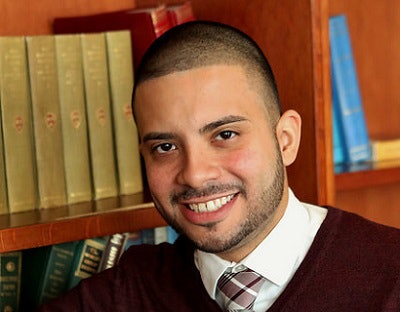As colleges and universities become increasingly diverse in terms of their enrollment, they are quick to highlight how their incoming class is either the most racially or ethnically diverse class, the most first-generation college students to be admitted in a given year, or the most socioeconomically diverse incoming class. But what happens when these students come to campus?
Often studied in relation to choice, research on access tends to focus on trends of enrollment patterns as it relates to different forms of identity, socioeconomic status, and other factors. These studies offer great insight and suggestions for policies and practices to increase access for underrepresented student communities. However, it is important to note that “getting in” is only the first step.
The Philadelphia Magazine recently published a story about Wharton students selling their enrollment in courses that are highly desired but are often full. These courses, particularly in finance, are known to be effective in helping students secure internship and employment opportunities. When students find themselves unable to enroll, they are willing to pay a student to drop the class in hopes to be able to take that spot. Other students also mention trying to buy into particular time slots or discussion sections that were most convenient for their schedules. What ramifications does that have for students who simply can’t afford to do that?
These types of issues go beyond the scope of enrolling in specific classes. During my tenure as an assistant dean at Cornell University, students I advised talked about the hypercompetitive nature of professional fraternities and marketing, finance, and consulting clubs that had established relationships with banks and employers. While desired, students simply could not afford membership, nor did they feel like they could compete to be accepted into these organizations with their more wealthy peers who already had a wardrobe of interview outfits.
 Andrew Martinez
Andrew MartinezIn a recent conversation I had with friends about art classes in college, we talked about how certain art and photography courses were simply too expensive. While these courses had fewer books needed, the price of art equipment could easily add up to a thousand dollars. While a student may be able to cover these costs with financial aid funds, it is important to note that some students use their financial aid to help their family as a means of giving back while in school.
For institutions that have a physical education requirement, weekend long recreational courses like rock climbing, snowboarding, hiking, as well as many others can be costly and may not even include the equipment necessary to participate. While there may be free or affordable courses offered, there is still an unpleasant feeling of wanting to take a course offered at your institution and simply being unable to because of how expensive it is—especially when many of your peers are able to.
There are also many schools that offer pre-orientation trips. These experiences offer students the opportunity to form community over service or recreational activities that I believe everyone would like to participate in, but simply cannot due to financial circumstances. In Anthony Jack’s remarkable book The Privileged Poor: How Elite Colleges Are Failing Disadvantaged Students, Jack shares how some students at an elite university participate in these life-changing experiences while lower-income students are enticed to clean the dorms before move-in to earn some income before starting school. While this pre-orientation program is a paid-opportunity, how do you think it feels to clean dorm rooms while your peers are traveling the world and having fun?
Simply put, there have been significant efforts in helping low-income students enter higher education, but not as much in addressing the barriers low-incomes students encounter once they are in college. Sure, they can manage to meet all their requirements to graduate, but is it fair that their wealthier peers can buy their way into classes, afford to be in competitive organizations known to help tremendously in professional development and networking, and participate memorable and exciting experiences? We need to expand the way we think of access to include what happens throughout a student’s time in college.
Andrew Martinez is a Ph.D. candidate at the University of Pennsylvania’s Graduate School of Education and research associate at the Rutgers Center for Minority Serving Institutions. You can follow him on Twitter @Drewtle


















